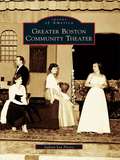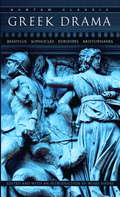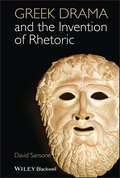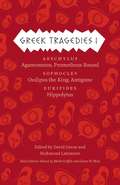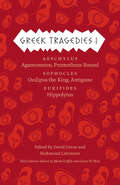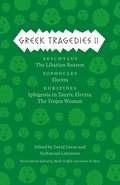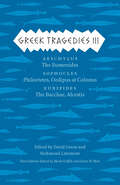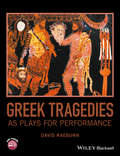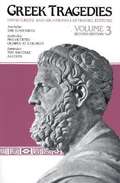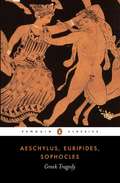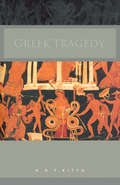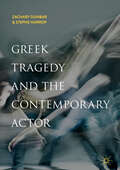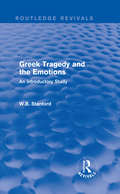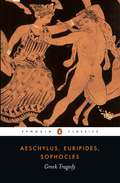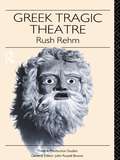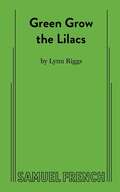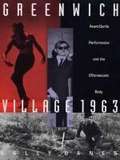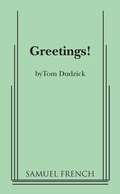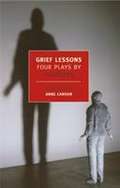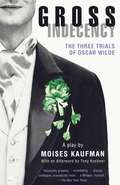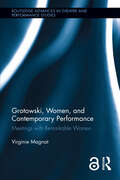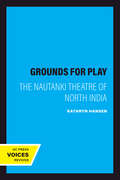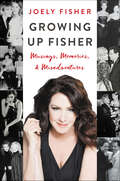- Table View
- List View
Greater Boston Community Theater
by Judson Lee PierceThe roots of community theater can be traced back to before the Revolutionary War. In the years that followed, many towns throughout America were fortunate to have both professional and amateur acting companies. The evolution of the moving picture forced many of these professional theaters to close their doors, but theater lovers in small communities still wanted the real thing, live theater. Today there are numerous community theater groups around the Boston area, including the oldest continuing community theater group in the country, the Footlight Club, which was founded in 1877. In the spirit of community, many theater companies donate to charities and sponsor playwriting contests and scholarship programs. They all share a common goal: bring live theater to suburban communities. Greater Boston Community Theater presents rare photographs from more than a dozen community theaters to document and celebrate the rich tapestry of theater life.
Greek Drama
by Moses HadasIn power, passion, and the brilliant display of moral conflict, the drama of ancient Greece remains unsurpassed. For this volume, Professor Hadas chose nine plays which display the diversity and grandeur of tragedy, and the critical and satiric genius of comedy, in outstanding translations of the past and present. His introduction explores the religious origins, modes of productions, structure, and conventions of the Greek theater, individual prefaces illuminate each play and clarify the author's place in the continuity of Greek drama. Copyright © Libri GmbH. All rights reserved.
Greek Drama and the Invention of Rhetoric
by David SansoneAsserts a novel and controversial theory on the origins of rhetoric that differs radically from the standard view Argues that it was the theatre of Ancient Greece, first appearing around 500 BC, that prompted the development of formalized rhetoric, which evolved soon thereafter Provides a cogent reworking of existing evidence Reveals the bias and inconsistency of Aristotle
Greek Theatre Performance
by David WilesIn this book, David Wiles introduces ancient Greek theater to students and enthusiasts interested in knowing how the plays were performed. Theater was a ceremony bound up with fundamental activities in ancient Athenian life and Wiles explores those elements that created the theater of the time. Actors rather than writers are the book's main concern and Wiles examines how the actor used the resources of story-telling, dance, mask, song and visual action to create a large-scale event that would shape the life of the citizen community.
Greek Tragedies 1: Aeschylus - Agamemnon, Prometheus Bound; Sophocles: Oedipus The King, Antigone; Euripides: Hippolytus
by David Grene Richmond Lattimore Glenn W. Most Mark GriffithGreek Tragedies, Volume I contains Aeschylus's "Agamemnon," translated by Richmond Lattimore; Aeschylus's "Prometheus Bound," translated by David Grene; Sophocles's "Oedipus the King," translated by David Grene; Sophocles's "Antigone," translated by Elizabeth Wyckoff; and Euripides's "Hippolytus," translated by David Grene. Sixty years ago, the University of Chicago Press undertook a momentous project: a new translation of the Greek tragedies that would be the ultimate resource for teachers, students, and readers. They succeeded. Under the expert management of eminent classicists David Grene and Richmond Lattimore, those translations combined accuracy, poetic immediacy, and clarity of presentation to render the surviving masterpieces of Aeschylus, Sophocles, and Euripides in an English so lively and compelling that they remain the standard translations. Today, Chicago is taking pains to ensure that our Greek tragedies remain the leading English-language versions throughout the twenty-first century. In this highly anticipated third edition, Mark Griffith and Glenn W. Most have carefully updated the translations to bring them even closer to the ancient Greek while retaining the vibrancy for which our English versions are famous. This edition also includes brand-new translations of Euripides' Medea, The Children of Heracles, Andromache, and Iphigenia among the Taurians, fragments of lost plays by Aeschylus, and the surviving portion of Sophocles's satyr-drama The Trackers. New introductions for each play offer essential information about its first production, plot, and reception in antiquity and beyond. In addition, each volume includes an introduction to the life and work of its tragedian, as well as notes addressing textual uncertainties and a glossary of names and places mentioned in the plays. In addition to the new content, the volumes have been reorganized both within and between volumes to reflect the most up-to-date scholarship on the order in which the plays were originally written. The result is a set of handsome paperbacks destined to introduce new generations of readers to these foundational works of Western drama, art, and life.
Greek Tragedies I: Aeschylus: Agamemnon, Prometheus Bound; Sophocles: Oedipus the King, Antigone; Euripides: Hippolytus (The Complete Greek Tragedies)
by David Grene and Richmond LattimoreOutstanding translations of five plays, now updated with informative new content for students, teachers, and lovers of the classics.Greek Tragedies, Volume I contains:Aeschylus’s “Agamemnon,” translated by Richmond LattimoreAeschylus’s “Prometheus Bound,” translated by David GreneSophocles’s “Oedipus the King,” translated by David GreneSophocles’s “Antigone,” translated by Elizabeth WyckoffEuripides’s “Hippolytus,” translated by David Grene.Sixty years ago, the University of Chicago Press undertook a momentous project: a new translation of the Greek tragedies that would be the ultimate resource for teachers, students, and readers. They succeeded. Under the expert management of eminent classicists David Grene and Richmond Lattimore, those translations combined accuracy, poetic immediacy, and clarity of presentation to render the surviving masterpieces of Aeschylus, Sophocles, and Euripides in an English so lively and compelling that they remain the standard translations.In this highly anticipated third edition, Mark Griffith and Glenn W. Most have carefully updated the translations to bring them even closer to the ancient Greek while retaining the vibrancy they the for which our English versions are famous. New introductions for each play offer essential information about its first production, plot, and reception in antiquity and beyond. Each volume includes an introduction to the life and work of its tragedian, as well as notes addressing textual uncertainties and a glossary of names and places mentioned in the plays. In addition to the new content, the volumes have been reorganized both within and between volumes to reflect the most up-to-date scholarship on the order in which the plays were originally written. The result is a collection destined to introduce new generations of readers to these foundational works of Western drama, art, and life.
Greek Tragedies II: Tbe Libation Bearers • Electra • Iphigenia in Tauris, Electra, The Trojan Women
by Sophocles Aeschylus EuripidesGreek Tragedies, Volume II contains Aeschylus’s “The Libation Bearers,” translated by Richmond Lattimore; Sophocles’s “Electra,” translated by David Grene; Euripides’s “Iphigenia among the Taurians,” translated by Anne Carson; Euripides’s “Electra,” translated by Emily Townsend Vermeule; and Euripides’s “The Trojan Women,” translated by Richmond Lattimore. Sixty years ago, the University of Chicago Press undertook a momentous project: a new translation of the Greek tragedies that would be the ultimate resource for teachers, students, and readers. They succeeded. Under the expert management of eminent classicists David Grene and Richmond Lattimore, those translations combined accuracy, poetic immediacy, and clarity of presentation to render the surviving masterpieces of Aeschylus, Sophocles, and Euripides in an English so lively and compelling that they remain the standard translations. Today, Chicago is taking pains to ensure that our Greek tragedies remain the leading English-language versions throughout the twenty-first century. In this highly anticipated third edition, Mark Griffith and Glenn W. Most have carefully updated the translations to bring them even closer to the ancient Greek while retaining the vibrancy for which our English versions are famous. This edition also includes brand-new translations of Euripides’ Medea, The Children of Heracles, Andromache, and Iphigenia among the Taurians, fragments of lost plays by Aeschylus, and the surviving portion of Sophocles’s satyr-drama The Trackers. New introductions for each play offer essential information about its first production, plot, and reception in antiquity and beyond. In addition, each volume includes an introduction to the life and work of its tragedian, as well as notes addressing textual uncertainties and a glossary of names and places mentioned in the plays. In addition to the new content, the volumes have been reorganized both within and between volumes to reflect the most up-to-date scholarship on the order in which the plays were originally written. The result is a set of handsome paperbacks destined to introduce new generations of readers to these foundational works of Western drama, art, and life.
Greek Tragedies III: Aeschylus: The Eumenides; Sophocles: Philoctetes, Oedipus at Colonus; Euripides: The Bacchae, Alcestis (The Complete Greek Tragedies)
by Sophocles Aeschylus EuripidesThis anthology collects some of the most important plays by Ancient Greek tragedians, in updated translations with new introductions.Greek Tragedies, Volume III presents some of the finest and most fundamental works of Western dramatic literature. It draws together plays of Aeschylus, Sophocles, and Euripides from Chicago’s acclaimed nine-volume series, Complete Greek Tragedies. This third edition updates the translations to bring them even closer to the ancient Greek while retaining the vibrancy for which they are famous. New introductions for each play provide essential information about the production histories and the stories themselves.This volume contains Aeschylus’s “The Eumenides,” translated by Richmond Lattimore; Sophocles’s “Philoctetes,” translated by David Grene; Sophocles’s “Oedipus at Colonus,” translated by Robert Fitzgerald; Euripides’s “The Bacchae,” translated by William Arrowsmith; and Euripides’s “Alecestis,” translated by Richmond Lattimore.
Greek Tragedies as Plays for Performance
by David RaeburnThis is a unique introduction to Greek tragedy that explores the plays as dramatic artifacts intended for performance and pays special attention to construction, design, staging, and musical composition. Written by a scholar who combines his academic understanding of Greek tragedy with his singular theatrical experience of producing these ancient dramas for the modern stage Discusses the masters of the genre—Aeschylus, Sophocles, and Euripides—including similarities, differences, the hybrid nature of Greek tragedy, the significance that each poet attaches to familiar myths and his distinctive approach as a dramatic artist Examines 10 plays in detail, focusing on performances by the chorus and the 3 actors, the need to captivate audiences attending a major civic and religious festival, and the importance of the lyric sections for emotional effect Provides extended dramatic analysis of important Greek tragedies at an appropriate level for introductory students Contains a companion website, available upon publication at www.wiley.com/go/raeburn, with 136 audio recordings of Greek tragedy that illustrate the beauty of the Greek language and the powerful rhythms of the songs
Greek Tragedies, Vol. 3
by David Grene Richmond LattimoreIn three paperback volumes, the Grene and Lattimore editions offer a selection of the most important and characteristic plays of Aeschylus, Sophocles, and Euripides from the nine-volume anthology of The Complete Greek Tragedies. This volume contains Aeschylus: The Eumenides; Sophocles: Philoctetes, Oedipus at Colonus; Euripedes: The Bacchae, Alcestis.
Greek Tragedy
by Sophocles Aeschylus EuripidesThree masterpieces of classical tragedy Containing Aeschylus's Agamemnon, Sophocles' Oedipus Rex, and Euripides' Medea, this important new selection brings the best works of the great tragedians together in one perfect introductory volume. This volume also includes extracts from Aristophanes' comedy The Frogs and a selection from Aristotle's Poetics. Translated, edited and with notes by Simon Goldhill, Malcolm Heath, Shomit Dutta, Philip Vellacott, and E. F. Watling
Greek Tragedy (Routledge Classics Ser.)
by H. D. KittoThis classic work not only records developments in the form and style of Greek drama, it also analyses the reasons for these changes. It provides illuminating answers to questions that have confronted generations of students, such as:* why did Aeschylus introduce the second actor?* why did Sophocles develop character drawing?* why are some of Euripides' plots so bad and others so good?Greek Tragedy is neither a history nor a handbook, but a penetrating work of criticism which all students of literature will find suggestive and stimulating.
Greek Tragedy and the Contemporary Actor
by Zachary Dunbar Stephe HarropThis book offers a provocative and groundbreaking re-appraisal of the demands of acting ancient tragedy, informed by cutting-edge scholarship in the fields of actor training, theatre history, and classical reception. Its interdisciplinary reach means that it is uniquely positioned to identify, interrogate, and de-mystify the clichés which cluster around Greek tragedy, giving acting students, teachers, and theatre-makers the chance to access a vital range of current debates, and modelling ways in which an enhanced understanding of this material can serve as the stimulus for new experiments in the studio or rehearsal room. Two theoretical chapters contend that Aristotelian readings of tragedy, especially when combined with elements of Stanislavski’s (early) actor-training practice, can actually prevent actors from interacting productively with ancient plays and practices. The four chapters which follow (Acting Sound, Acting Myth, Acting Space, and Acting Chorus) examine specific challenges in detail, combining historical summaries with a survey of key modern practitioners, and a sequence of practical exercises.
Greek Tragedy and the Emotions: An Introductory Study (Routledge Revivals)
by W. B. StanfordAccording to Aristotle the main purpose of tragedy is the manipulation of emotions, and yet there are relatively few accessible studies of the precise dynamics of emotion in the Athenian theatre. In Greek Tragedy and the Emotions, first published in 1993, W.B. Stanford reviews the evidence for ‘emotionalism’ – as the great Attic playwrights presented it, as the actors and choruses expressed it, and as their audiences reacted to it. Sociological aspects of the issue are considered, and the whole range of emotions, not just ‘pity and fear’, is discussed. The aural, visual and stylistic methods of inciting emotion are analysed, and Aeschylus’ Oresteia is examined exclusively in terms of the emotions that it exploits. Finally, Stanford’s conclusions are contrasted with the accepted theories of tragic ‘catharsis’. Greek terms are transliterated and all quotations are in translation, so Greek Tragedy and the Emotions will appeal particularly to those unfamiliar with Classical Greek.
Greek Tragedy: The Persians, The Seven Against Thebes, The Suppliant Maidens, Prometheus Bound (Greek Tragedy In New Translations Ser.)
by Sophocles Aeschylus EuripidesAgememnon is the first part of the Aeschylus's Orestian trilogy in which the leader of the Greek army returns from the Trojan war to be murdered by his treacherous wife Clytemnestra. In Sophocles' Oedipus Rex the king sets out to uncover the cause of the plague that has struck his city, only to disover the devastating truth about his relationship with his mother and his father.Medea is the terrible story of a woman's bloody revenge on her adulterous husband through the murder of her own children.
Greek Tragic Style
by R. B. RutherfordGreek tragedy is widely read and performed, but outside the commentary tradition detailed study of the poetic style and language of Aeschylus, Sophocles and Euripides has been relatively neglected. This book seeks to fill that gap by providing an account of the poetics of the tragic genre. The author describes the varied handling of spoken dialogue and of lyric song; major topics such as vocabulary, rhetoric and imagery are considered in detail and illustrated from a broad range of plays. The contribution of the chorus to the dramas is also discussed. Characterisation, irony and generalising statements are treated in separate chapters and these topics are illuminated by comparisons which show not only what is shared by the three major dramatists but also what distinguishes their practice. The book sheds light both on the genre as a whole and on many particular passages.
Greek Tragic Theatre (Understanding the Ancient World)
by Rush RehmEmphasizing the political nature of Greek tragedy, as theatre of, by and for the polis, Rush Rehm characterizes Athens as a performance culture; one in which the theatre stood alongside other public forums as a place to confront matters of import. In treating the various social, religious and practical aspects of tragic production, he shows how these elements promoted a vision of the theatre as integral to the life of the city - a theatre focussed on the audience.
Green Grow The Lilacs
by Lynn RiggsThis evocative play charting the rocky romance between headstrong farmgirl Laurey and cocky cowhand Curley in a tale of early America during the settlement of the midwest was the basis of the classic Rodgers and Hammerstein musical Oklahoma! Using the colorful vernacular of the period, Green Grow the Lilacs paints a picture of pioneer farmlife with colorful characters and language, presenting a dramatic challenge to professionals and amateurs alike.
Greenwich Village 1963: Avant-Garde Performance and the Effervescent Body
by Sally BanesThe year was 1963 and from Birmingham to Washington, D.C., from Vietnam to the Kremlin to the Berlin Wall, the world was in the throes of political upheaval and historic change. But that same year, in New York's Greenwich Village, another kind of history and a different sort of politics were being made. This was a political history that had nothing to do with states or governments or armies--and had everything to do with art. And this is the story that Sally Banes tells, a year in the life of American culture, a year that would change American life and culture forever. It was in 1963, as Banes's book shows us, that the Sixties really began. A leading writer on cultural history, Banes draws a vibrant portrait of the artists and performers who gave the 1963 Village its exhilarating force, the avant-garde whose interweaving of public and private life, work and play, art and ordinary experience, began a wholesale reworking of the social and cultural fabric of America. Among these young artists were many who went on to become acknowledged masters in their fields, including Andy Warhol, John Cage, Yoko Ono, Yvonne Rainer, Lanford Wilson, Sam Shepard, Brian de Palma, Harvey Keitel, Kate Millet, and Claes Oldenburg. In live performance--Off-Off Broadway theater, Happenings, Fluxus, and dance--as well as in Pop Art and underground film, we see this generation of artists laying the groundwork for the explosion of the counterculture in the late 1960s and the emergence of postmodernism in the 1970s. Exploring themes of community, freedom, equality, the body, and the absolute, Banes shows us how the Sixties artists, though shaped by a culture of hope and optimism, helped to galvanize a culture of criticism and change. As 1963 came to define the Sixties, so this vivid account of the year will redefine a crucial generation in recent American history.
Greetings!
by Tom DudzickComedy / 3m, 2f / Andy has a sweet Catholic mother, a sour Catholic father and a severely retarded younger brother named Mickey. When he brings his Jewish atheist fiance to meet the folks on Christmas Eve, his worst fears about family blow ups are realized. But Mickey, whose entire vocabulary is "oh boy" and "wow," suddenly says "Greetings!" An ancient, wise and witty spirit who is set upon healing the family has borrowed Mickey's body. Though a play for all seasons, Greetings! is ideal for groups wanting something special to put on at Christmas/Hanukkah time. The Off Broadway production starred Darren McGavin and Gregg Edelman.
Grief Lessons: Four Plays by Euripides
by Anne Carson Eurípides<p>Euripides, the last of the three great tragedians of ancient Athens, reached the height of his renown during the disastrous Peloponnesian War, when democratic Athens was brought down by its own outsized ambitions. “Euripides,” the classicist Bernard Knox has written, “was born never to live in peace with himself and to prevent the rest of mankind from doing so.” His plays were shockers: he unmasked heroes, revealing them as foolish and savage, and he wrote about the powerless–women and children, slaves and barbarians–for whom tragedy was not so much exceptional as unending. Euripides’ plays rarely won first prize in the great democratic competitions of ancient Athens, but their combustible mixture of realism and extremism fascinated audiences throughout the Greek world. In the last days of the Peloponnesian War, Athenian prisoners held captive in far-off Sicily were said to have won their freedom by reciting snatches of Euripides’ latest tragedies. <p>Four of those tragedies are presented here in new translations by the contemporary poet and classicist Anne Carson. They are Herakles, in which the hero swaggers home to destroy his own family; Hekabe, set after the Trojan War, in which Hektor’s widow takes vengeance on her Greek captors; Hippolytos, about love and the horror of love; and the strange tragic-comedy fable Alkestis, which tells of a husband who arranges for his wife to die in his place. The volume also contains brief introductions by Carson to each of the plays along with two remarkable framing essays: “Tragedy: A Curious Art Form” and “Why I Wrote Two Plays About Phaidra.”</p>
Gross Indecency: The Three Trials of Oscar Wilde
by Moises KaufmanA theatrical depiction of the Oscar Wilde trials that took place in the late 1800s. The famous playwright and renowned wit was publicly tried for his rumoured relationship with Lord Alfred Douglas. His sentencing shaped society's view of homosexuality as a criminal act.
Grotowski, Women, and Contemporary Performance: Meetings with Remarkable Women (Routledge Advances in Theatre & Performance Studies)
by Virginie MagnatAs the first examination of women's foremost contributions to Jerzy Grotowski's cross-cultural investigation of performance, this book complements and broadens existing literature by offering a more diverse and inclusive re-assessment of Grotowski's legacy, thereby probing its significance for contemporary performance practice and research. Although the particularly strenuous physical training emblematic of Grotowski's approach is not gender specific, it has historically been associated with a masculine conception of the performer incarnated by Ryszard Cieslak in The Constant Prince, thus overlooking the work of Rena Mirecka, Maja Komorowska, and Elizabeth Albahaca, to name only the leading women performers identified with the period of theatre productions. This book therefore redresses this imbalance by focusing on key women from different cultures and generations who share a direct connection to Grotowski's legacy while clearly asserting their artistic independence. These women actively participated in all phases of the Polish director’s practical research, and continue to play a vital role in today's transnational community of artists whose work reflects Grotowski's enduring influence. Grounding her inquiry in her embodied research and on-going collaboration with these artists, Magnat explores the interrelation of creativity, embodiment, agency, and spirituality within their performing and teaching. Building on current debates in performance studies, experimental ethnography, Indigenous research, global gender studies, and ecocriticism, the author maps out interconnections between these women's distinct artistic practices across the boundaries that once delineated Grotowski's theatrical and post-theatrical experiments.
Grounds for Play: The Nautanki Theatre of North India
by Kathryn HansenThe nautanki performances of northern India entertain their audiences with often ribald and profane stories. Rooted in the peasant society of pre-modern India, this theater vibrates with lively dancing, pulsating drumbeats, and full-throated singing. In Grounds for Play, Kathryn Hansen draws on field research to describe the different elements of nautanki performance: music, dance, poetry, popular story lines, and written texts. She traces the social history of the form and explores the play of meanings within nautanki narratives, focusing on the ways important social issues such as political authority, community identity, and gender differences are represented in these narratives.Unlike other styles of Indian theater, the nautanki does not draw on the pan-Indian religious epics such as the Ramayana or the Mahabharata for its subjects. Indeed, their storylines tend to center on the vicissitudes of stranded heroines in the throes of melodramatic romance. Whereas nautanki performers were once much in demand, live performances now are rare and nautanki increasingly reaches its audiences through electronic media—records, cassettes, films, television. In spite of this change, the theater form still functions as an effective conduit in the cultural flow that connects urban centers and the hinterland in an ongoing process of exchange.
Growing Up Fisher: Musings, Memories, & Misadventures
by Joely FisherActress, director, entertainer Joely Fisher's touching, down-to-earth memoir filled with incredible, candid stories about her life, her famous parents, and how the loss of her unlikely hero, sister Carrie Fisher, ignited the writer in her.Growing up in an iconic Hollywood Dynasty, Joely Fisher knew a show business career was her destiny. The product of world-famous crooner Eddie Fisher and ’60s sex kitten Connie Stevens, she struggled with her own identity and place in the world on the way to a decades-long career as an acclaimed actress, singer, and director. Now, Joely shares her unconventional coming of age and stories of the family members and co-stars dearest to her heart, while stripping bare her own misadventures. In Growing Up Fisher, she recalls the beautifully bizarre twist of fate by which she spent a good part of her childhood next door to Debbie Reynolds. She speaks frankly about the realities of Hollywood—the fame and fortune, the constant scrutiny. Throughout, she celebrates the anomaly of a two-decade marriage in the entertainment industry, and the joys and challenges of parenting five children, while dishing on what it takes to survive and thrive in the unrelenting glow of celebrity. She speaks frankly about how the loss of her sister Carrie Fisher became a source of artistic inspiration. Fisher’s memoir, with never-before-seen photos, will break and warm your heart.
